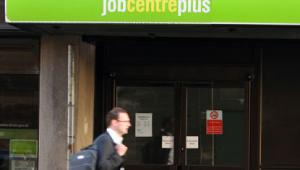By David Williams
7 September 2010
Cuts to housing benefit announced in the June emergency Budget have been slammed by poverty and housing campaigners after a new study found that the move would push thousands deeper into poverty.
Research by Cambridge University, commissioned by the housing charity Shelter, concluded that 54,000 children already living below the poverty line would sink further into deprivation because of the reforms.
Those families will be left with less than £100 a week after housing costs to cover all other outgoings including bills, transport and food. A total of 33,000 children will be in families surviving on £50 a week or less.
The research, published yesterday, tracks the impact of Chancellor George Osborne’s announcement that he would introduce a set of caps on housing benefit.
The limits, the highest of which is £400 a week for a property with four or more bedrooms, will come into effect from April 2011.
Shelter chief executive Campbell Robb said the research calls into question the government’s pledge to end child poverty by 2020.
‘It’s hard to see how the government plans to lift children out of poverty when one of its first big reforms threatens the futures of thousands of children who are already living on a knife edge,’ he said. Robb also warned that many families would be forced into substandard or overcrowded accommodation.
The Child Poverty ActionGroup agreed, with policy head Imran Hussain adding that the measures would increase the financial cost of child poverty on the taxpayer in the long run.
Shadow housing minister John Healey said Shelter’s report ‘shines a light on the stark impact of policies by rushed through by ministers who fail to grasp what life is really like for struggling families in Britain today’.
But the Department for Workand Pensions defended the reforms, saying housing benefit has become
‘wildly expensive and entirely unsustainable’.
A spokesman said the department did not recognise the findings of the report, and that the Budget is ‘poverty neutral’.
‘We have been left with a system that plunges thousands of vulnerable people into an unbreakable cycle of benefit dependency, costing the taxpayer billions of pounds every year,’ the spokesman added.


















